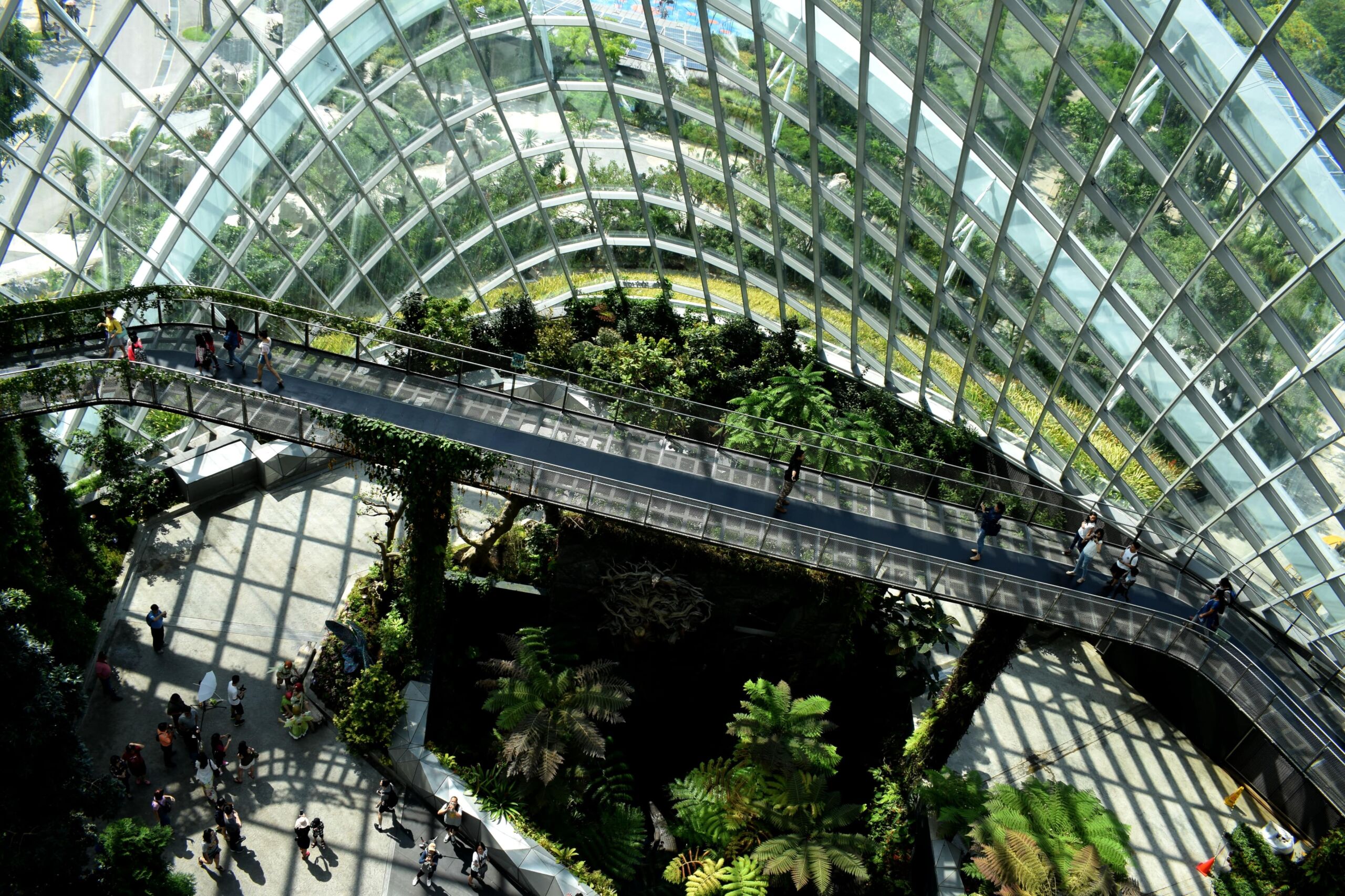Lessons in leadership from sustainability pioneers
At COP 26 in Glasgow, Sir David Attenborough kicked off the conference with an extraordinarily powerful address and video that explained the global climate crisis in language anyone can understand. He concluded by stating “We are after all, the greatest problem solvers to have ever existed on Earth. We now understand this problem…a new industrial revolution powered by millions of sustainable innovations, is essential, and is indeed already beginning.”
If we have known that climate change is a problem and we are such great problem solvers, then why have we waited so long to react? Sustainability is a journey, not a destination. It is a journey that never ends. It is all about committing to constant and evolving change by creating bold milestones inspired by outrageous visions. It starts with leaders understanding that sustainability is a mindset. Leaders have been selling us “death insurance” — the “we’re all going to die” story — for far too long. Stories of doom and gloom render us apathetic to change and unable to see the future. It all seems too big and overwhelming to overcome.
The leaders who are moving the dial on climate change are selling a “life insurance” story — one of enormous commercial opportunities. They understand that this represents the largest commercial opportunity of our time. They have mindsets that view the world as “bloom over doom” or in the words of John Donahue, CEO at Nike, “welcome to lap two.” Their messaging is positive, inspirational and full of promise. They recognize big opportunities early and commit to action — they commit and then figure it out.
Ray Anderson, one of the early sustainability pioneers, transformed his commercial carpet tile company, Interface, from a business drowning in fossil fuel inputs to one of the most sustainable businesses on the planet. Its products, processes and even its buildings use (as inputs) or sequester carbon. Anderson and Interface are building a future that is “fit for carbon.” Anderson once noted that “one of the things which is really clear, is you unleash the creativity of an organization when you hold up a vision that is so outrageous it takes the breath away. When the vision is that ambitious it has taken us places we would never have dreamed of.” He put into action his vision by articulating a seven-milestone strategy he labelled “the Seven Fronts of Mount Sustainability.” Ultimately, his costs were down — not up, exposing the myth of a “false choice” related to sustainability strategies. The company generated better products with better design features due to enhanced innovation capacities. But most importantly, it created better customer goodwill in the marketplace that no amount of slick advertising could accomplish. Interface’s messaging was “authenticity at its very best” leading to an enhanced brand. Anderson would often say that sustainability “is a better way to make a bigger profit, not at the expense of future generations and the Earth.”
Great leaders build companies that are driven by purpose and passion. Anderson was absolutely passionate about “Mount Sustainability.” Paul Polman launched Unilever’s “sustainable living” strategy in 2010. At the time, many of his peers thought he was crazy. The company will never make a profit again, they warned. Yet when the strategy was announced, the company was overwhelmed by people applying for jobs.
Unilever’s sustainable living plan was built on three long-term objectives:
1) To help a billion people improve their health and well-being;
2) To halve the environmental impacts across their value chain including the impacts from the consumer use of their products (or scope three impacts);
3) To improve the livelihoods of millions of people that are linked to their value chain.
The company also made a commitment to source 100% of its agricultural products sustainably. Polman would say of his sustainable living strategy: “As we opened up our model and created more transparency, we ended up building more trust with our employees, stakeholders and our value chain partners. People are proud to work on something where they make a difference in life. That is obviously a purpose-driven business model. We are getting more energy out of the company — the extra mile — that often makes the difference between a good company and a great company.”
He also said he realized that producing sustainable consumer products meant changing entire supply chains. For instance, to produce sustainable palm oil would take a decade of work transforming Unilever’s entire supply chain. Sustainability requires a long-term perspective. It is about systemic change, not incremental change. Incremental change is a killer. It is predictable and does not result in competitive advantage, particularly in today’s market that is driven by the exponential pace of change where speed, collaboration, experimentation, decentralized ecosystems and “failing fast to win big” are the hallmarks of category leaders.
He also recognized that scope three emissions — which in part, are those carbon emissions generated by the use of its products — needed to be a critical area of focus, despite the complexity of influencing consumer behaviour to, for instance, wash clothing in cold water. Changing customer behaviour is very difficult to do. Equating cold water with clean was unheard of! But Polman was way ahead of this time.
The last three COP conferences have focused on addressing the funding gap for the developing world to meet aggressive climate transition goals. Barbadian Prime Minister Mia Mottley recently gathered the world’s leaders in Paris to discuss her Bridgetown Initiative, which calls for changes and new mechanisms to provide inclusive, resilient finance that address the climate and development crises. She has shown extraordinary leadership, as a voice for the developing world, to call for reform in the global financial institutions that are the primary sources of development capital. She is incredibly passionate about climate change and the disproportionate impacts the actions of the Global North and their institutions are having on her and other emerging economies. She has a plan. It’s aggressive and it seeks to repair chronic, structural flaws that have made debt financing unsustainable for developing countries, particularly in the face of the trillions of dollars that will be required to finance net zero transitions in the Global South. Her tiny island nation is leading meaningful, global dialogue on sustainable financing solutions driven by her infectious leadership, passion and unbreakable spirit to push for new solutions to what have always been regarded as insurmountable and deeply entrenched Western politics.
I had the enormous good fortune of working for one of the greatest modern, industrial leaders, Sergio Marchionne, the former CEO of Fiat Chrysler. He preached that “fundamental change is driven by the sole notion of providing discontinuity and change to the business model. People who lead change look at businesses and look for ways in which they can deconstruct them. It can’t be planned. You have to be able to execute daily. It becomes a way of life.” Great leaders, in sustainability or otherwise, create bold visions for their businesses. They inspire their employees, customers, suppliers and other stakeholders to take on difficult challenges that matter — that make the world a better place for everyone. They inspire those in their organization to deliver the impossible, which is possible. It just probably hasn’t been done before. They “live” their visions daily. They embrace and celebrate change. They are passionate about their businesses, their employees, and the communities they serve. And they build the best companies grounded in purpose, diversity and inclusion, with strong cultures that are underpinned by a set of values and beliefs which are shared throughout the organization and with their stakeholders. They are leaders that lead.
Richard Blundell, Principal
The Sustainability Leader
This article first appeared in The Rotman Insights Hub
Share this post:
Recent Posts
What leadership lessons can be learned from the CEOs of Unilever, Interface and Blackrock? They see the business opportunity in a green future.
The Sustainability Leader’s Richard Blundell delivers a presentation on the future of on demand transit in urban settings at TEDx Corktown.
The Sustainability Leader’s Richard Blundell is a guest on the inaugural episode of The Compliance Podcast, hosted by Thomas Fox.




